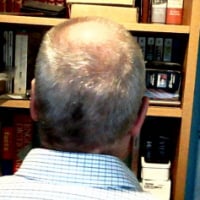We’d like to remind Forumites to please avoid political debate on the Forum.
This is to keep it a safe and useful space for MoneySaving discussions. Threads that are – or become – political in nature may be removed in line with the Forum’s rules. Thank you for your understanding.
📨 Have you signed up to the Forum's new Email Digest yet? Get a selection of trending threads sent straight to your inbox daily, weekly or monthly!
The Forum now has a brand new text editor, adding a bunch of handy features to use when creating posts. Read more in our how-to guide
Debts after death
Comments
-
No the CC company would not and could not ask for that.
However, when the executor values the estate for inheritance tax purposes that valuation will include all effects - the car certainly if it is worth something, and nominal amounts (maybe even zero) for furniture etc.
That valuation is public, and the CC company can look that up if they wanted to.1 -
That is good and reassuring to hear. I throught outstanding spousal debts may mean CC could ransack these household items if there was no owned bricks and mortar property or that would possibly leave property untouched and not forced to sell.My husband and I do not own our own home, but he has CC debts in his name only and I worry if he dies, I would find bailiffs on my door to take personal and household items.Thanks for the clarification0
-
If your husband does not own any assets such as a house, and there are no savings, insurance policies etc etc then the CC debt would not be paid.
they certainly would not require the executor to sell personal and household items (*)
* well, apart from that Renoir paining on your wall of course ! 1
1 -
jsmith9 said:No the CC company would not and could not ask for that.
However, when the executor values the estate for inheritance tax purposes that valuation will include all effects - the car certainly if it is worth something, and nominal amounts (maybe even zero) for furniture etc.
That valuation is public, and the CC company can look that up if they wanted to.If an item is jointly owned, doesn't it automatically pass to the surviving owner (like a joint tenancy property or a joint bank account)? And wouldn;t things like furniture typically be jointly owned in a marriage/partnership?In which case, would such items be valued as part of the deceased's estate? And even if they WERE valued as part of the estate, if they now legally belong to the surviving owner who is not liable for the estate's death, then presumably the debts cannot be repaid from such assets?
0 -
jonesMUFCforever said:My understanding is that a life policy written in trust is not part of an estate...True. The policy proceeds are payable to the trustees to use in accordance with the terms of the trust. Typically, this will require them to pay the fund to another person or group of people, or to hold it for their benefit. However, it's not inconceivable that the terms of the trust might provide for payment to the estate in some circumstances (though this would be unusual).
This is less certain. It will depend entirely on the type of pension and the scheme rules or terms of the insurance policy providing benefits.. There are some situations in which the pension fund will be payable to the estate; there are others when the trustees or managers will have discretion, and might decide to pay the estate*; there are others when it will be payable automatically to someone other than the estate.jonesMUFCforever said:My understanding is that ... pension funds will also be outside his estate...*For many years, one of my responsibilities was to exercise such a discretion on behalf of scheme trustees. There were cases when I found it appropriate to instruct the administrators to pay the member's estate.
0
Confirm your email address to Create Threads and Reply

Categories
- All Categories
- 353.5K Banking & Borrowing
- 254.1K Reduce Debt & Boost Income
- 455K Spending & Discounts
- 246.6K Work, Benefits & Business
- 602.9K Mortgages, Homes & Bills
- 178.1K Life & Family
- 260.6K Travel & Transport
- 1.5M Hobbies & Leisure
- 16K Discuss & Feedback
- 37.7K Read-Only Boards




